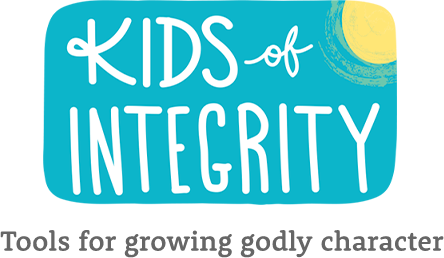Gratitude
Feed a grow-in-water creature with sugar water to teach kids that overindulging in all kinds of treats can make us ungrateful.
You will need a grow-in-water creature (often available in dollar stores), a large clear bowl, a jug that can hold 8 cups of water, a cup, a teaspoon and up to two cups of sugar.
- First, put your grow-in-water toy in the bowl.
- Add 8 cups of water to your jug.
- Have your children gather food from your cupboards that might contain sugar.
- Examine the food labels on the food you’ve gathered. For each food item, determine how many grams of sugar are in an individual serving.
- For each food item, have your children take turns adding sugar to the jug of water in direct proportion to the sugar found in the food.
(Since one teaspoon of sugar weighs four grams, divide the weight of sugar given on the food label by four to determine how many teaspoons of sugar to add to your jug of water.)
Here are some examples to help:
one chocolate chip cookie has 12 grams of sugar (according to the label) and 12÷4=3, so add 3 teaspoons of sugar to your jug of water
one 355 ml can of Coca-Cola has 39 grams of sugar (according to the label) and 39÷4 = 9.7, so add 10 teaspoons of sugar to your jug of water.
- After preparing your sugar water, allow your kids to “feed” the expandable creature by pouring 2 to 3 cups of the sugar water into the bowl.
- Once or twice a day, revisit the expandable creature and observe its growth. Continue to add sugar water as needed. Most will be fully grown in 24 to 48 hours.
- Once the creature has expanded to full size, remove it from the water and watch to see what happens over time.
Questions for discussion
- If you could eat any one food all day, every day, what would it be?
- Would your body be healthy then?
- What happened to our toy creature when we fed it sugar water?
- What happened when we stopped feeding it sugar water?
- Besides taking away our appetite for healthy foods, what does too much sugar do to a person?
- How can our appetite be like the toy creature?
- Can you think of any other appetites or habits that like to grow and grow, but are unhelpful?
Key concepts
Practicing moderation in a culture that is very pleasure-oriented can be challenging. We love treats, and it can be hard to stop ourselves from having more than we should. The problem is that when we continuously indulge in all kinds of things – such as sweet food or junk food, for example – having a lot of these things becomes the expected norm, eventually causing a lack of appreciation for the treats. This kind of overindulgence breeds ungratefulness.
Some other potentially harmful things we can overindulge in include watching television, playing digital games or buying clothing, toys and gadgets. None of these activities are wrong in and of themselves, but a constant “diet of pleasure” can cause a person to lose their appreciation for things that are meant to be “treats” that we enjoy just a little of.
It’s always a good idea to stop and think about the choices we are making. Some good questions to ask might be:
- Do I really need this, or do I just want it?
- Can I do without this?
- Will I regret making this choice (or purchase) later?
- Is this a healthy choice, or am I just eating it because I want to?
- Is there a better way for us to use this money than buying ________.
End your lesson by praying as a family, asking God to help you be careful with the money you spend on extras.
Relevant Scripture
Proverbs 25:16 “If you have found honey, eat only enough for you, lest you have your fill of it and vomit it.
”
Luke 12:14-15 “But He said to him, ‘Man, who made Me a judge or arbitrator over you?’ And He said to them, ‘Take care, and be on your guard against all covetousness, for one’s life does not consist in the abundance of his possessions.’
”
- Acceptance
- Adaptability
- Attentiveness
- Christmas
- Compassion
- Confidence
- Consideration
- Contentedness
- Cooperation
- Courage
- Courtesy
- Discernment
- Easter
- Faithfulness
- Forgiveness
- Generosity
- Gentleness
- Gratitude
- Harmony
- Honesty
- Humility
- Joy
- Kindness
- Obedience
- Patience
- Perseverance
- Respect
- Responsibility
- Reverence
- Righteousness
- Self-control
- Thanksgiving


